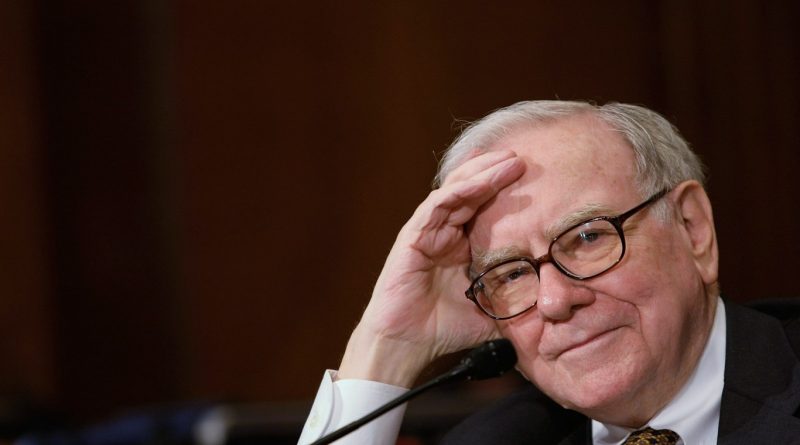What Is Warren Buffet’s Exposure to Crypto?
There are many ways one could measure Bitcoin’s penetration into mainstream investing. One of the more exotic is measuring Warren Buffet’s indirect exposure to Bitcoin despite his distaste for the new asset class.
Why Does Warren Buffett Dislike Bitcoin?
Following the rapid descent of Gautam Adani after Hindenberg’s scathing report, Warren Buffett is now ranked the world’s 5th richest man, at $108.9 billion net worth, according to Forbes. Yet, besides his wealth, Buffett is best known as probably the most quotable investor alive.
Specifically, Warren’s value-oriented investment philosophy has had much traction. The ‘Oracle of Omaha’ once said that “price is what you pay, value is what you get.” But he also warned that “risk comes from not knowing what you’re doing.”
Both of those statements manifested regarding Buffett’s take on Bitcoin. Notably, he doesn’t see Bitcoin as ‘sound money,’ which is peer-to-peer, limited in supply, and censorship-resistant. Instead of emphasizing them, as some would say, revolutionary attributes, Buffett has always likened Bitcoin to something utterly irrational.
When Charlie Munger called Bitcoin “rat poison” in 2013, BTC was at $100. Five years later, when Bitcoin got over $9,000, Buffett one-upped Munger’s take, calling it “probably rat poison squared.” Therefore, Bitcoin’s problem is not value appreciation but the baseline for it.
“Cryptocurrencies basically have no value and they don’t produce anything. They don’t reproduce, they can’t mail you a check, they can’t do anything, and what you hope is that somebody else comes along and pays you more money for them later on, but then that person’s got the problem. In terms of value: zero.”
Warren Buffet to CNBC, February 2020
This view disregards fiat currency devaluation and the risk of having bank accounts frozen or going defunct via bank runs. It also conflates cryptocurrencies with Bitcoin, disregarding that each BTC is backed by energy. More importantly, Bitcoin’s core value is disambiguating the transmission of the value.
Yet, as these Bitcoin attributes became recognizable, it was inevitable that Buffett himself would’ve been indirectly exposed to Bitcoin investments.
Berkshire Hathaway’s Crypto Exposure
Since 1965, Warren Buffett has served as the Chairman and CEO of Berkshire Hathaway. In that time, the company grew to a $690 billion investment juggernaut. The bulk of Buffett’s portfolio is in Apple (41.76%) and other classic holdings such as Coca-Cola (7.57%), Chevron (8.02%), and Bank of America (10.30%).
However, Buffet also holds $1.47 billion worth of Visa shares (V), $1.1 billion worth of Mastercard shares (MA), and $471.3 million worth of Nu Holdings (NU). All three companies are heavily involved in crypto rails.
The Brazil-based Nu Holdings, previously Nubank before going public, is none other than a digital neo-bank set to launch its token, Nucoin, in the first half of this year. Aside from offering Bitcoin and Ethereum trading, Nu will use Ethereum’s Polygon network for Nucoin to reward customer loyalty.
In Brazil alone, Nubank’s customer base has expanded to 53.9 million in 2021, a +439% increase from 2019. Moreover, last May, Nu Holdings announced that 1% of neobank’s equity would be converted to Bitcoin.
“There can be no doubt that cryptocurrencies are a growing trend in Latin America. We have been following the market closely and we believe that [crypto has] transformational potential in this region.”
David Velez, Nubank CEO
Likewise, both Visa and Mastercard payment processors have partnered with crypto companies to offer crypto-linked debit cards. To name a few, Mastercard partnered with BitOasis, the top MENA (Middle East & North Africa) crypto exchange, enabling customers to convert fiat to crypto across 90 million global merchant locations.
Visa recently partnered with Wirex for the Asia-Pacific (APAC) region, alongside the UK, to expand crypto-linked debit cards that had already been issued in the US. Visa’s strategy has always been clear when it comes to digital assets.
“Visa wants to bring more payment options to consumers by connecting digital currencies with our network of banks and merchants,”
Matt Wood, Head of Digital Partnerships, Asia Pacific, Visa
In this light, where does Warren Buffett apply his advice that “risk comes from not knowing what you’re doing”?
Suppose so many people and companies see value in cryptocurrencies. In that case, his approach is to rely on payment rails to cushion the risk, whether it is the risk from the people not knowing what they are getting into or Buffett’s lack of knowledge.
This article originally appeared on The Tokenist
Sponsored: Tips for Investing
A financial advisor can help you understand the advantages and disadvantages of investment properties. Finding a qualified financial advisor doesn’t have to be hard. SmartAsset’s free tool matches you with up to three financial advisors who serve your area, and you can interview your advisor matches at no cost to decide which one is right for you. If you’re ready to find an advisor who can help you achieve your financial goals, get started now.
Investing in real estate can diversify your portfolio. But expanding your horizons may add additional costs. If you’re an investor looking to minimize expenses, consider checking out online brokerages. They often offer low investment fees, helping you maximize your profit.
Source: Read Full Article

